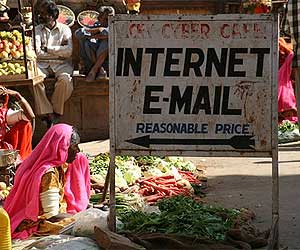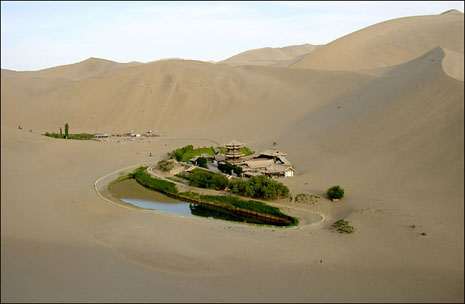Sanctuaries of Disconnection
Recently a friend managed to secure internet connectivity at his weekend retreat house. He says, “It’s a sneaky broadband, a Sprint aircard that goes in the slot in the side of the Macbook Pro. $60/month for broadband as good as DSL and all the bits I can eat. No need for wi-fi when traveling, as long as there’s a cell phone signal.”
Part of the design of the weekend retreat was to “get away” from the obligations, stress and demands of the working weekdays. Internet connectivity was part of the bind, and so being offline part of the escape. So I am of two minds about what to say when a retreat is fast forwarded.
We need a word for condolences-congratulations. As in, I’m sorry and delighted. As in, that is wonderful, terrible! Times this word can be used:
when a mom gives births to triplets;
when a student gets accepted to law school;
when your child breaks up an unhealthy relationship;
when a relative is jailed for DUI;
when a friend hacks a way to get the internet at their vacation home.
Maybe that word exists. Let me know.
A decade ago many folks who like to worry about the advance of technology were worried about the “Digital Divide.” This phrase signified the unfair gap between those who had computers and the internet and those who did not. Most of the world did not. The question was usually directed at champions of the internet like myself and framed in almost these words verbatim: “What are you going to do about the digital divide?”
At the time my standard reply was, “Nothing. This is a case of the haves and have-laters. The haves (that’s us) are going to overpay for crummy early technology that barely works, in order to make it cheaper and better for the have-laters, who will get it for dirt cheap pretty soon.”

I then went on to say what I still believe now. “The have-laters are going to adopt this technology so fast and so widely, that very soon all 6 billion people on earth are going to be wired up, and the real thing we should be worried about, if you want to worry, is: What will happen when we are all connected? Where will we go to retreat from the hive mind? What happens when there is no place to be a digital have-not?”
The Digital Divide is a term you don’t hear much anymore. It’s no longer an issue because cell phones cured the gap almost overnight. Connectivity is ubiquitous in most countries. In fact cell phone coverage is often better in developing countries than in the US. The digital have-laters now have.
The follow-thru from all this is a small prediction. Connectivity is now so cheap, so pervasive, so democratic and common that I believe there will be a small movement among some individualists, trend-setters and early adopters to disconnect. In the next twenty years we’ll see a renowned personage arise who rejects cell phones and email, and who is available ONLY face to face.

The digital retreat may even be something you pay more for. Just as you now might seek out hotels that have wi-fi, in the near future, you may have to pay more for a spa that has no cell phone or wi-fi, but that has all kinds of other hi-touch technology. The place has everything except it is not connected on purpose. It takes a certain kind of person, in a certain phase of life, to be able to drop out into a disconnected resort, and that exclusivity will be a selling point. (Some very rich folks don’t carry any cash, either.)
There are nefarious reasons to be disconnected as well. Because of that, and its potential attraction for the over-connected, I would expect to see maps of unconnected places to appear. Let’s call them Black Maps. The most highly prized black areas would be those surrounded by high connectivity. Little oasises of disconnection adjacent to the totality of the connected world. In such proximity, the disconnection could not be passive, but would have to be deliberately and creatively engineered. It’s even questionable whether it would be legal (later on) to construct a place not connected to cell, wi-fi, or perhaps even visible in gps.
I don’t expect to see this in the next 10 years. For the good of connection is way to obvious to halt our collective desire to bring it to everyone. But I do expect to see small signs of retreat among the over- and constantly-connected. For some going cold turkey may be the only response.
The prospect of this dropping out is wonderful, terrible!


